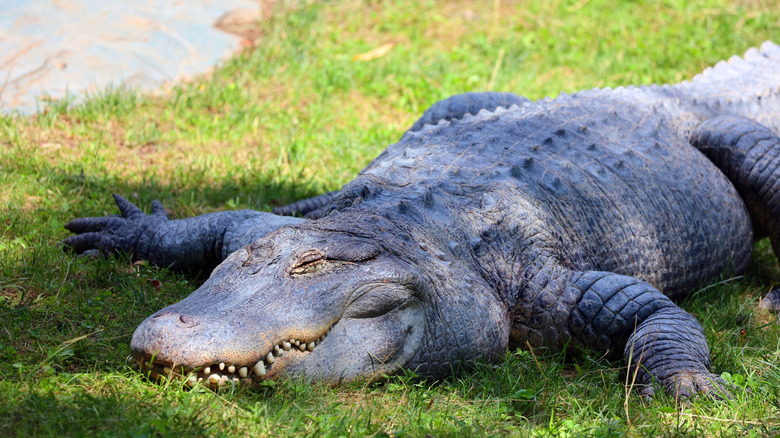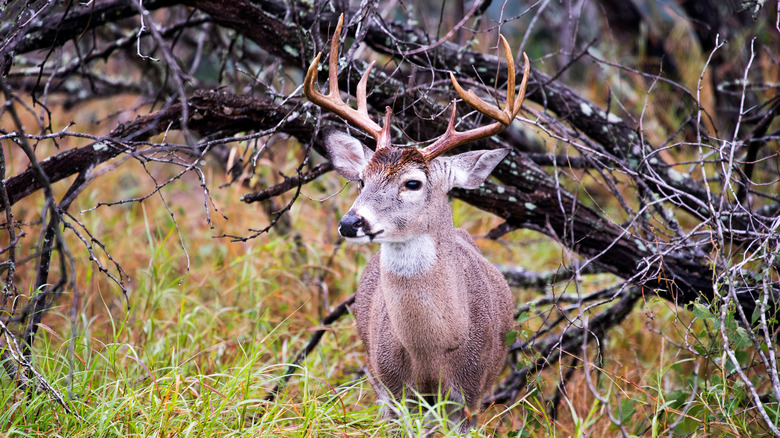A Scenic But Dangerous Canyon Is One Of The Most Gator-Filled Destinations In Texas
Most dangerous gator and crocodile-infested waters in the U.S. are in Florida and Louisiana, but ignore the Lone Star State at your peril. Texas is the third-most gator-filled state in America, with a population of around half a million alligators. Choke Canyon Reservoir — located between San Antonio and Corpus Christi — is well-known for its alligator residents.
In some of the most dangerous parks around the world, you'll run into all sorts of creatures that you should probably keep your distance from, including bears, gorillas, snakes, and lions. But at Choke Canyon Reservoir, gators are everywhere — and most of them are mature, meaning they are huge. Some of these alligators can grow even longer than 14 feet since hunting in the area is limited. In fact, one hunter snagged a gator just under 14 feet at Choke Canyon in October 2024 that weighed in at a whopping 750 pounds. That's not too far behind the largest gator ever hunted in Texas (800 pounds), which was also caught in Choke Canyon Reservoir.
But don't let the gators scare you away. Choke Canyon is a popular area for fishing, birdwatching, camping, and, yes, even swimming. Naturally, visitors should take extra precautions whenever they're near the alligators' habitat. There are designated swimming areas for safety, and they close at sunset, as alligators are most active at night.
Staying safe at Choke Canyon State Park
Texas State Parks offers alligator safety information on its website, so be sure to read through those guidelines if you're planning to visit. Obviously, visitors should keep their distance from alligators (at least 30 feet away) and not harass or feed the animals. Not only is feeding the gators against the rules, but it's also a crime that could get you slapped with up to a $500 fine. Park staff are around to help if you see any alligators near a designated swimming area or if one comes out of the water towards you. If that happens, it usually means someone has fed it, and it might be looking to you for its next snack.
Visitors should also be aware of the terrain, water currents, and algae blooms if they decide to go into the water. Anglers can fish from a boat or the shore (no license needed from the shore), and nature lovers are in for way more than just alligators — the park is home to everything from deer and coyotes to a diverse variety of birds, including the crested caracara. If you're not so sure and want to check out some gators in a more controlled environment, you could first plan a trip to this U.S. amusement park that's home to thousands of alligators and crocodiles.

